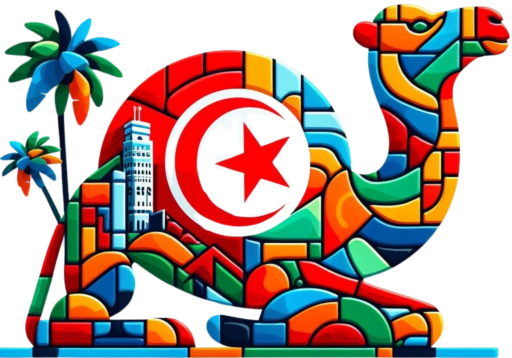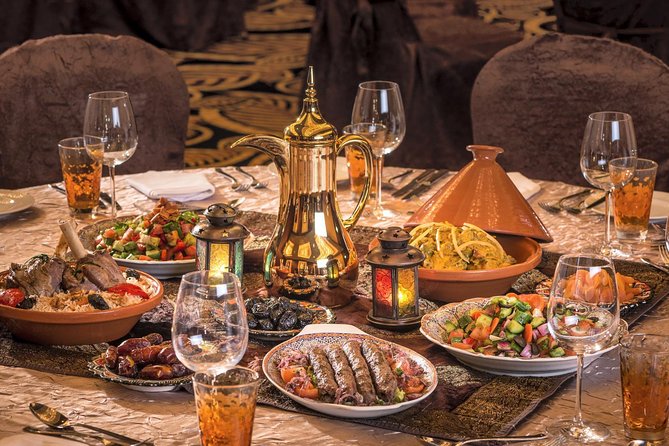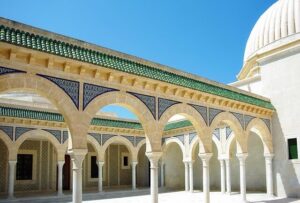A particular period in which to start going to Tunisia is certainly the Ramadan period. Although all essential services are guaranteed, during the month of Ramadan it should be noted that most shops will be closed until sunset (including most grocery stores) and you will be faced with a city that will seem almost deserted, so it is good to understand first of all which days it falls on and, if it coincides with the dates that you have interest in, it is certainly a good idea to inquire about what Ramadan is, given that it is one of the so-called Five Pillars of Islam. Furthermore, it can be very interesting to consider traveling around this period especially since this month of fasting is followed by one of the most important religious holidays: the Id al-fitr (Feast of the breaking of the fast), second only to the Id al-kabīr , the Feast of Sacrifice held after the journey to the Holy Mosque in Mecca.
What is it and what happens during Ramadan
Almost everyone knows that during Ramadan, one fasts during the day, while eating is allowed in the evening, but among non-Muslims, few know exactly what Ramadan is. Let’s see together what it consists of, briefly.
The Five Pillars of Islam are the five basic obligations that every Muslim chooses to submit to: testimony of faith, prayer, legal almsgiving, fasting during Ramadan and pilgrimage to Mecca. We will focus on Ramadan: the month of fasting to commemorate the first revelation of the Koran to Muhammad. This religious precept aimed at all adults excludes the elderly, diabetics, terminally ill, travelers and pregnant, lactating or menstruating women. In particular, one abstains from drinking, eating, smoking, engaging in sexual acts, bad thoughts, bad deeds and indulging in anger, except in self-defense. Come evening, practitioners break their fast with water and dates (this first meal is called Iftar), chanting Saha Chribtek (may it be for your health).
A changeable month and an unusual trip
As with the date of Easter, which varies each year, Ramadan also does not have a fixed start and end date. Muslim authorities establish the beginning of this month (for their calendar it is the ninth month) based on the observation of the crescent moon.
The Islamic calendar is shorter than the solar one by about ten days and strictly follows the phases of the moon. This means that, compared to the solar one, the Islamic calendar recedes, gradually changing the season.
As already mentioned, the months are linked to the lunar phases: they begin with the new moon and end with the sighting of the new crescent moon (or after 30 days of fasting, in case sighting cannot occur due to adverse weather conditions).
Currently, the forecasts for 2023 identify Ramadan in Tunisia as starting on March 23, ending on April 21 with Id al-fitr, the Feast of the breaking of the fast. The most interesting part is that in Tunisia the day of Id al-fitr is followed by two days of national holiday, which means that it will be a holiday from April 21st to 23rd.This holiday, especially for 2023, coincides with a weekend and for an Italian this could meet with the bridge for April 25, to lead to almost an entire week of vacation in which to admire the transition from the end of Ramadan to the resumption of normal activities, through the Feast of Breaking the Fast. Although during Ramadan our advice is not to consume anything in public, out of respect for those who practice the last days of fasting, seeing the city flourish again is a particular spectacle. As a dish to be savored, in these festive days, you will certainly find Maʿmūl ( معمول), traditional sweets in shortcrust pastry filled with dates, figs or dried fruit (pistachios, almonds, etc.), cooked in the oven. For those wishing to experience dinner during Ramadan, there are sites where you can book the complete package, for example for Tunis, where you could request to be picked up at the hotel, have dinner and return to the hotel.
To give you an idea of how much 2023 combines a series of dates with a bridge that makes the trip ideal, here are the official dates for the public holidays of Id al-fitr in Tunisia for the next few years:
- 2024 – 10, 11 and 12 April
- 2025 – 30, 31 March and 1 April
- 2026 – 20, 21 and 22 March
Recommendations
Even if Tunisia has no laws explicitly forbidding eating, drinking or smoking in public during Ramadan (which instead occurs in the countries of the Persian Gulf), we remind you, as well as suggesting you not to eat in public, that it is good It is a rule to walk around dressed with dignity, reserving your bathing suit for the swimming pool of the hotel where you are staying and similar places, perhaps going to the beach only after Ramadan has ended. After all, the sea won’t run away and it’s wonderful just to admire it.





